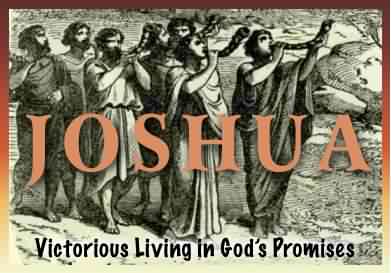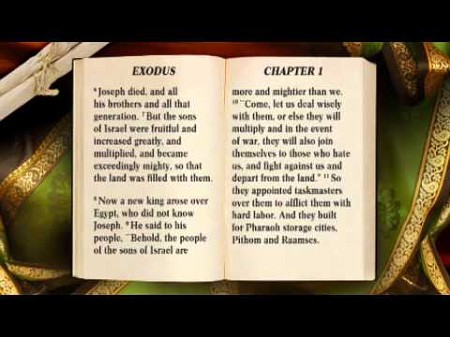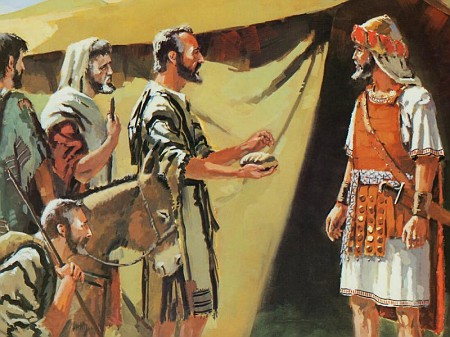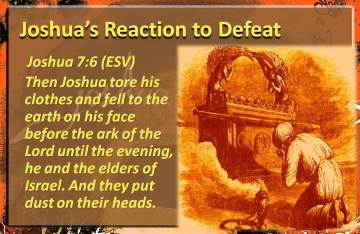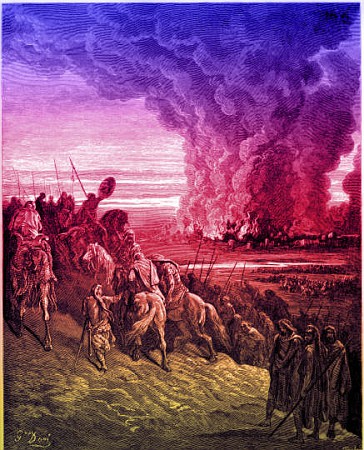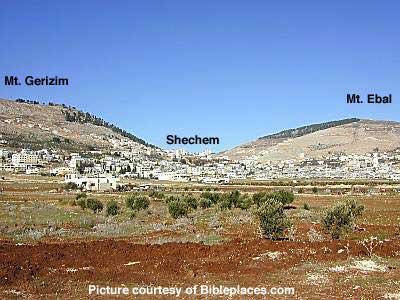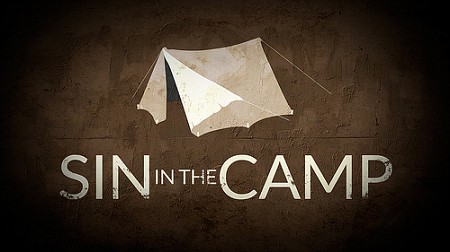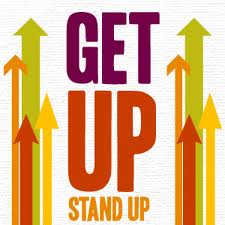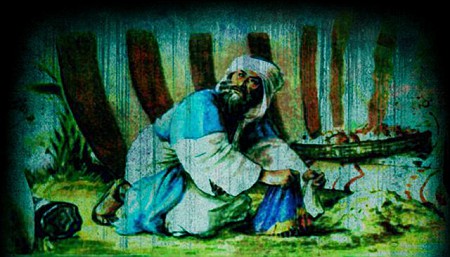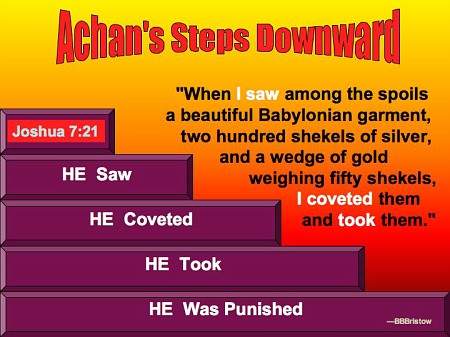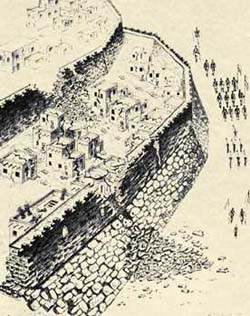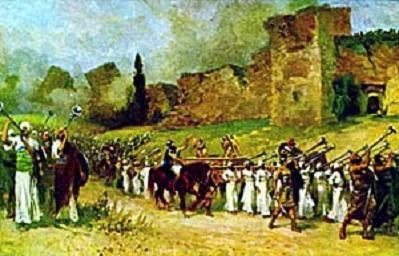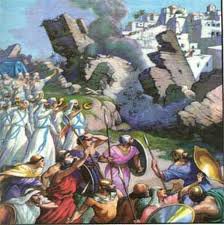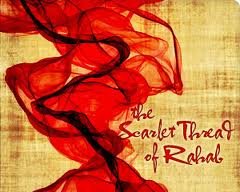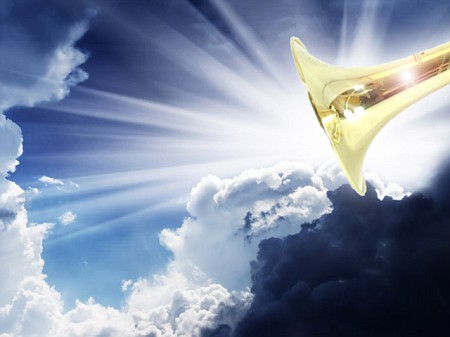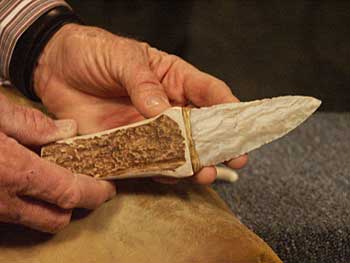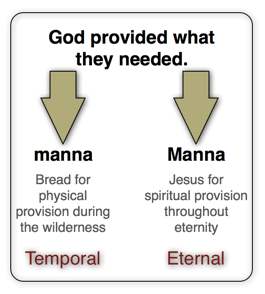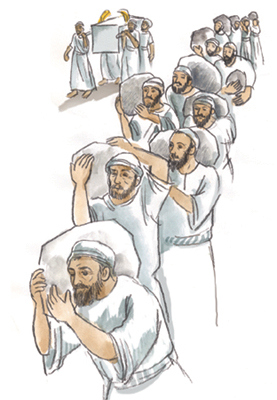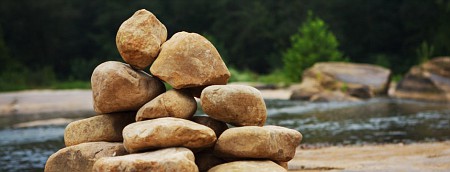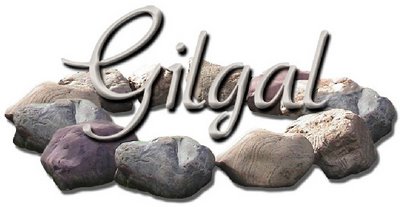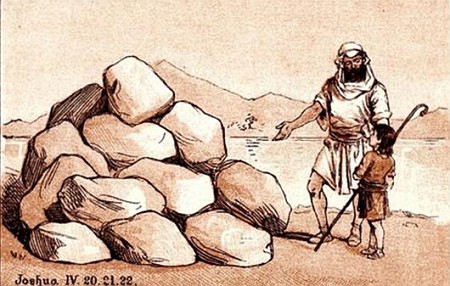The Lord told Joshua not to fear or be dismayed. What was the Lord giving to him at this time? vs. 1
In Chapter 7, we saw that Israel tried to take Ai and were unable to. What has happened between then and now that made the difference? (Review 7:4-5; 6-8; 10-12; 25-26)
Back to Joshua 8. What would the victory at Ai be comparable to? What were they allowed to take for plunder for themselves? How were they to attack the city as instructed by the Lord? vs. 2
How many valiant warriors did Joshua choose for this battle? When were the warriors sent out? vs. 3
Joshua and the people would approach the city while the warriors were behind it hidden. When the city of Ai would come out to meet Israel, Israel would flee from them, causing the people to pursue them, leaving the city unguarded, going after Joshua and the people. (vs.4-6) What were the warriors to do from behind the city and what would the result be? vs. 7
Once they had seized the city, what were they to do to the city? vs. 8
Where did Joshua send the warriors to? Where did Joshua stay? vs. 9
According to verse 12, how many men were sent to this ambush site on the west side of the city of Ai? vs. 12
The people of war that were still with Joshua drew near to the front of the city. Which side of Ai did they camp on? vs. 10,11
There was a valley between him and Ai. (vs.11) He stationed the people, all the army on the north side of the city, and the rear guard on the west side of the city. (vs.13) Where did Joshua spend the night? vs. 13
When the king of Ai saw Israel's people, the men of the city hurried out to meet them for battle, he and all his people at the appointed place before the desert plain. What did the king of Ai not know about? vs. 14
What did Joshua and all of Israel "pretend" to be as they fled into the wilderness? vs. 15
What did the people of the city of Ai do? vs. 16
Who was left in the cities of Ai and Bethel? Where had they gone? Was the city guarded by anyone? vs. 17
What did the Lord have Joshua do to claim the city of Ai for Him? vs. 18
Have you ever stretched out your hand toward something or someone you were praying for? Does this action by Joshua help you see where that comes from? It is directing the Lord's power to a certain place. ((kind of neat, huh)) ?
What did the men in the ambush rise up and do as Joshua had his hand stretched out with the javelin in it? What was the result? What was the final thing they did to destroy the city of Ai? vs.19
What did the men of Ai realize when they turned back to look and saw the smoke of their city ascending to the sky? Where could they run to for safety? vs. 20
What did Joshua and all of Israel do when they realized the men in ambush had captured the city of Ai when they saw the smoke ascending? vs. 21
Who was left of all the people of Ai at the end of this battle? vs. 22
What happened to the king of Ai? vs. 23
What was the number that fell in Ai that day, both men and women? vs.24,25
What did Joshua do the entire time until the last person was destroyed? vs. 26
What did Israel do with the cattle and the spoil of the city of Ai? How did they know it was okay to do this ... "this time" ... ? vs. 27
Joshua burned Ai and made it a heap forever. (vs.28) .... What did Joshua do to the king of Ai? vs. 29
What did they do with the king's body at sunset? vs. 29
What did Joshua do after that? Where was this done at? vs. 30
Whose command were they following and what did they make the altar from accordingly? vs. 31
What kind of offerings were made to the Lord there? vs. 31
Name 2 types
What did Joshua take the time to "write" on these stones? Who was present to watch him write these? vs. 32
All of Israel (including elders, officers, judges, strangers, and natives) were standing on both sides of the ark of the Covenant before the Levitical priests who carried it. Name the two mountains that they stood on; half on each one. vs. 33
This was done in accordance to what Moses had commanded them to do when they came into the promised land. Read about these instructions from the references below and state any interesting facts that you would like to remember about this:
Deuteronomy 11:22-32
Deuteronomy 27:1-13
Back to Joshua 8. What did Joshua read from the Book of the Law written by Moses to all the people as they stood on Mt. Gerizim and Mt. Ebal? vs. 34,35
Was everyone present when every word was read of the law by Joshua to them? Who did it include? vs. 35
- How important is it that we have the Word of God read to us in public settings? Comment on the following verses:
Romans 10:17
Hebrews 4:12
1 Timothy 4:13
2 Timothy 3:14-17
2 Peter 1:19-21
Application:
-
Have you had "Ai" battle experiences? Truly, we all have. When we leave the Lord out of our plans and proceed on our own understanding, we finally come to the end of ourselves and our well intended plans.
The Lord wants us to come to Him first, and after a time of prayer and confession of sin, get His directions. God has a plan of victory already marked out for us. We simply get up each day and say, “Captain of Hosts, here I am reporting for duty! What are my orders today?” When He tells you, you snap to attention and follow His marching orders.
Comment on the following verses:
Proverbs 3:5-8
Proverbs 16:18
Proverbs 18:10
Proverbs 18:12
Proverbs 21:31
Psalm 108:12
James 4:6
James 4:10
1 Peter 5:6
Joshua followed the Captains plan "this time" to a "T". They laid the ambush out, and at the time appointed he held out the javelin banner, signaling the other men to burn the city. Joshua kept the javelin raised high, until the inhabitants were slain, the victory assured.
In Man’s plan, they suffered a horrible defeat by a tiny foe the first time out. In God’s Victory, they not only had a glorious victory, but got a bonus city-Bethel.
When God is allowed to work He always does more than we even expect or imagine. That is the Power of God when we follow His plan!
The Lord had a plan for Peter and the disciples that they did not understand. Read the accounts below and see how the Lord helped Peter see that it was not by his own might or power, but by the Spirit of the Lord, that these things would come about in his life.
The Calling
"Our Works vs. His Work"
Luke 5:1-11
The Pride of Service
"We think we can"
Mark 14:17-31
Weakness of Peter's Flesh
"We hope we can"
Mark 14:32-42
Prayers for Peter
"Jesus knows we can't"
Luke 22:31-34
The Falling
"I failed my Lord"
Mark 14:53-72
The Forgiveness
"Turn & Strengthen Others"
Luke 22:32
John 21:1-14
John 21:15-17
The Following
"No matter what, Follow Me"
John 21:22
The Fight & The Fire
"His wounds My healing"
1 Peter 2:21-25
"Humility & Strength"
1 Peter 5:6-11
What will following the Captain of the Hosts bring to us every day?
John 10:10
John 15:11
John 17:3
Galatians 5:22,23
1 Peter 1:8
Jude 1:24
Matthew 6:33
Ephesians 3:20,21
Jude 1:24
Battle of the Mind - how can we follow the Captain of Hosts?
Get dressed right each day.
Ephesians 6:10-13
Avoid wrong counsel.
Colossians 2:8-12
Go to the Word...renew your mind....seek His will.
Romans 12:1,2
Pray this way
Philippians 4:6-7
Stand Firm
Ephesians 6:13,14
Fight Good Fight
1 Timothy 6:12
Keep Praising Him (as Joshua held high the javelin in battle)
Philippians 4:8
Hebrews 13:15
Remember - Apart from Him - we can do nothing.
John 15:5
Have we allowed pride and presumption to lead us into a prayerless powerless defeated life? Is God the most important thing in our daily life? Are we following the Captain of Hosts even in the mundane decisions of life or do we sometimes think we’ve got it handled? If so, we are setting ourselves up for defeat. We will encounter defeat at Ai.
However, The Captain of the Host stands at the door of our lives. He promises us abundant living and a faith that will overcome all the obstacles thrown at us. We just need to remember these duo battles at "Ai" each and every day.
Why were thy defeated in the first one? What brought the victory in the second one? Let's remember to communicate with the Lord of Hosts, Pray to Him, Worship Him, and live a life of peace and victory over sin. "We shall know the truth and the truth will set us free!" (John 8:32).
P.S. While writing the application portion of this lesson, the Lord put the following song on my heart, so I posted it in our Christian Video forum. You can click the button and it should open for you to listen to. Enjoy as I did!
Summarize this lesson and post a prayer if you would like.
